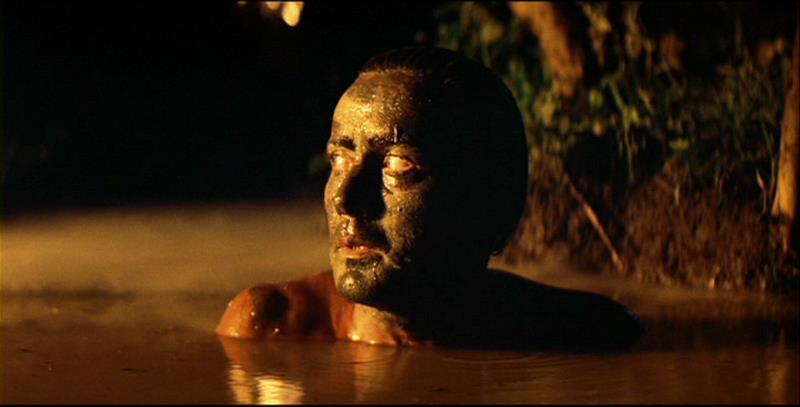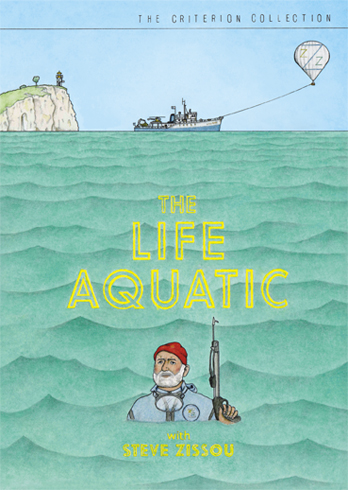1.
“Jimmy Fallon Brings Earnest, Nice-Guy Vibe to His First Tonight Show“: With Jay Leno’s retirement comes the inception of Jimmy Fallon as new host of the Tonight Show. Willa Paskin of Slate reviews Fallon’s first night on the job.
“The show kicked off with Fallon, looking simultaneously excited and nervous, coming out onto a New York City stage in light gray suit—a sartorial break from Leno’s dark suit tradition—and doing a very low-key, jovial but not particularly jokey introduction of himself, house band the Roots, his parents, and the show’s regular format, all of it about as first-day-of-school as The Tonight Show can get. Fallon gave some brief biographical details. (‘I’m 39 years old,’ etc.) He introduced his sidekick. He expressed immense gratitude for the gig. ‘If you guys let me stick around long enough,’ Fallon said, ‘Maybe I’ll get the hang of it.'”
2.

“Writ Large: 5 Recent Movies That Should Be Books”: At Word and Film Lisa Rosman discusses what 5 modern movies should be made into pieces of literature.
“Remember what Diane Keaton’s character did for a living in 1979’s ‘Manhattan’? When she wasn’t mispronouncing Van Gogh or declaring F. Scott Fitzgerald ‘overrated,’ she wrote “novelizations” – books based upon already released movies. It was a weirdly popular cultural phenomenon that still exists, though its appeal has faded with the advent of DVDs and streaming content. But what if it got resuscitated? Despite their potential to fail to live up to our expectations, literary adaptations are considered a very legitimate genre of film. So maybe it’s time for these adaptations to go in the other direction. Certainly the films of 2013, a terrific year in cinema, offer many worlds that could be expanded wonderfully on page.”
3.

“The Counselor: The Movie Oscars Season Forgot”: Hailed by some as a criminally misunderstood masterpiece, the Ridley Scott directed, Cormac McCarthy written drama has recently been released on DVD. To report on the film’s extended edition is Calum Marsh at Esquire. (Note: Mr. Marsh did not write the aforementioned headline)
“Unlike, say, Breaking Bad, in which an ordinary man finds himself in over his head when he begins to deal with criminals, The Counselor isn’t really “about” the morality of the drug trade. It isn’t a cautionary tale inviting us to see the error of the Counselor’s ways. Without details, the world of the film isn’t instructive. It simply is. This, of course, is quintessential McCarthy: As in Blood Meridian, we’re shown extraordinary acts of violence that shock not for how brutal they are, but for how pointless they’re made to seem. (Brad Pitt’s character puts it thusly: “The beheadings and the mutilations? That’s just business. You have to keep up appearances. It’s not like there’s some smoldering rage at the bottom of it.”) There’s no room for psychology or justice in McCarthy’s world. All that matters is the system.”
4.

“Grindhouse to John Carter – 18 ‘Dream Projects’ That Turned Into Nightmares”: History has repeatedly proven to us that every artist has the capability of making a dud. From Martin Scorsese to Steven Seagal, Drew McWeeny of HitFix highlights 18 projects that went disastrously awry.
“I am starting to suspect that dream projects should never be made. I know that sounds counter-intuitive and incredibly pessimistic. Hear me out. Certainly, there are movies I love that very talented people have worked tirelessly to realize, and I would be devastated if those films did not exist. I get it. I love ‘Apocalypse Now.’ I love that it smells desperate and sweaty in a way precisely because of the insane demands the production made on everyone. I love that it was finished. I adore every flaw, every eccentricity. I love it. But it is also true that there are many dream films that have been made that have turned out to be mystifyingly bad, bad in a way that can only be personal, and while I can’t imagine what might have started me thinking about this topic recently, I thought it would be worth looking back at what’s happened when people have backed a vision and given it everything and stood back and looked at the end result and thought.”
5.

“House of Cards: Season 2”: Alan Jones at Slant Magazine reviews the popular Netflix original series starring Kevin Spacey, House of Cards. Related: “Still Tripping on Power” by Matt Zoller Seitz at Vulture. “House of Cards: Season 2 Netflix Review” by Benjamin Secher at The Telegraph. “Why ‘House of Cards’ Binge-Watching Disposability is a Feature, Not a Bug” by Sam Adams at CriticWire.
“It’s become redundant to mention how many television protagonists are “bad,” but Underwood belongs to an entirely different sub-species. He’s not a good man who’s been corrupted by financial necessity, nor is he a lifelong mobster who also happens to be a loving father and family man. Frank Underwood’s “badness” is all-encompassing, his amorality the defining characteristic. Unlike Breaking Bad’s Walter White, he wasn’t driven into “the empire business” by chronic insecurities. In the first season, there are fleeting references to an unhappy childhood and unrequited same-sex love, but these have been more or less abandoned (and Underwood’s bisexuality reclaimed as merely an example of his self-confidence). To use a Nietzschean contrast, Walter White is bad, but Underwood is evil.”
Image of the Day

The upcoming May titles of the “Criterion Collection” have been released. Wes Anderson’s The Life Aquatic with Steve Zissou will be one of many films to join the prestigious catalogue come this summer.
Video of the Day
Director Luce Boyce presents a video tribute to the 15th annual Ebertfest.












